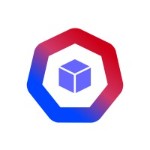In today’s digital age, cloud security is of utmost importance. This blog post aims to provide readers with an overview of the best cloud security software available in the market, along with its definition, benefits, features, use cases, potential problems, costs, and FAQ. By the end of this article, readers will have a comprehensive understanding of the best cloud security companies, and be able to make an informed decision when choosing the best cloud security solution for their organization.
Cloud security refers to the measures and technologies implemented to protect data, applications, and infrastructure stored and accessed in the cloud from unauthorized access, data breaches, and other cybersecurity threats.

Best Cloud Security List
Here are the top 5 cloud security software providers:
Definition of Cloud Security
Cloud security refers to a set of policies, technologies, and controls designed to protect data, applications, and infrastructure in cloud environments. It includes various security measures such as encryption, identity and access management, network security, vulnerability management, threat protection, and compliance management.

Benefits of Cloud Security
Enhanced Security
Cloud security provides enhanced security for data and applications by implementing robust security measures for cloud workloads such as encryption, firewalls, and access controls.
Scalability
Cloud security solutions are scalable and can be customized based on the needs of the organization. This means that organizations can choose the level of data security they require and scale up or down as needed.
Cost-Effective
Cloud security solutions are cost-effective as they eliminate the need for on-premise security infrastructure and hardware. This also reduces maintenance costs and frees up IT staff to focus on other business-critical tasks.
Improved Efficiency
Cloud security solutions automate security processes, such as security monitoring, threat detection, and incident response, improving overall efficiency and productivity.

Key Cloud Security Features
Encryption
Cloud security solutions provide encryption for data at rest and in transit between cloud providers. This ensures that data is protected from unauthorized access and breaches.
Access Controls
Cloud security solutions provide granular access controls, enabling organizations to control who has access to what data and applications.
Identity and Access Management
Cloud security solutions provide identity and access management, allowing organizations to manage user identities and access to resources across the cloud environment.
Threat Detection and Response
Cloud security solutions provide threat detection and response capabilities, enabling organizations to detect and respond to various security risks and threats in real-time.
Cloud Access Security Broker (CASB)
What is a Cloud Access Security Broker (CASB)? Cloud Access Security Brokers (CASB) is software that sits between you, the cloud service consumer, and your cloud service provider(s).

Cloud Security Use Case Examples
Small and medium-sized businesses that lack the resources to manage their own security infrastructure can benefit from cloud security solutions.
Large enterprises that require scalable and customizable security solutions can benefit from cloud security solutions.
Government organizations that require high-level security for sensitive data can benefit from cloud security solutions.
Healthcare organizations that require secure storage and sharing of sensitive patient data can benefit from cloud security solutions.
E-commerce companies that require secure payment processing and transaction management can benefit from cloud security solutions.

Potential Cloud Security Problems
One potential problem with cloud security is the risk of data breaches, which can occur due to human error, system vulnerabilities, or cyberattacks. Another potential problem is the lack of control over the security of cloud infrastructure, as it is managed by the cloud provider.
Cloud Security Costs
The costs of cloud security vary depending on the provider and the level of security required. Cloud security solutions are typically offered on a subscription basis and can range from a few hundred dollars per month to several thousand dollars per month. Additional costs may include setup fees, integration fees, and training costs.

How We Chose the Best Cloud Security
Selecting the best hybrid cloud security and solution for your organization can have a significant impact on the security and protection of your data and applications. With numerous options available in the market, it can be challenging to choose the best one for your needs.
To simplify the decision-making process, we conducted extensive research and analysis to identify the top cloud security providers in the industry.
Our methodology for selecting the best cloud security vendors is based on several key factors. First, we considered the functionality and features offered by each provider, including encryption, access controls, identity and access management, and threat detection and response capabilities. We also evaluated the scalability and customization of each top 10 cloud security solution, as well as the integration capabilities with other business systems such as project management, communication, and productivity tools.
Second, we assessed the user interface and ease of use, as well as the level of customer support and service offered by each provider. We analyzed customer reviews and feedback on popular review sites such as Serchen, G2, and TrustRadius, to gauge user satisfaction and the level of support provided by each vendor.
Lastly, we considered the pricing and affordability of each solution, as well as any additional costs such as setup fees, integration fees, and training costs.
By considering these factors, we have identified the top 5 cloud security providers listed above that offer the most comprehensive, user-friendly, and cost-effective solutions for organizations looking to secure their data and applications in the cloud.
Top 5 Cloud Security Providers

Microsoft Azure
Microsoft Azure is a cloud computing platform that offers a range of security services, including encryption, threat detection, and access controls. It provides a comprehensive set of security tools that can be integrated with other Microsoft products such as Office 365 and Windows 10.
Pros:
Offers a wide range of security services
Can be easily integrated with other Microsoft products
Provides advanced threat detection capabilities
Cons:
Can be complex for non-technical users
Some features may require additional licensing fees
Best fit customers: Large enterprises that require scalable and customizable security solutions.

Amazon Web Services (AWS)
Amazon Web Services (AWS) is a cloud computing platform that provides a range of security services such as identity and access management, network security, and data encryption. It also provides compliance certifications such as HIPAA and PCI DSS.
Pros:
Offers a wide range of security services
Provides compliance certifications
Easy to use and configure
Cons:
Can be expensive for smaller organizations
Requires technical expertise to configure and manage
Best fit customers: Large enterprises that require scalable and customizable security solutions.

Google Cloud Platform (GCP)
Google Cloud Platform (GCP) provides a range of security services such as identity and access management, data encryption, and network security. It also a cloud security company provides compliance certifications such as HIPAA and PCI DSS.
Pros:
Offers a range of security services
Provides compliance certifications
Easy to use and configure
Cons:
Limited integration capabilities with third-party products
Can be expensive for smaller organizations
Best fit customers: Small and medium-sized businesses that require scalable and cost-effective security solutions.

IBM Cloud
IBM Cloud provides a range of security services such as encryption, identity and access management, and network security. It also a security company provides compliance certifications such as HIPAA and PCI DSS.
Pros:
Offers a range of security services
Provides compliance certifications
Easy to use and configure
Cons:
Limited integration capabilities with third-party products
Can be expensive for smaller organizations
Best fit customers: Large enterprises that require scalable and customizable security solutions.

Cloudflare
Cloudflare is a cloud-based security and performance solution that provides a range of security services such as DDoS protection, web application firewall, and content delivery network (CDN). It also provides performance optimization services such as caching and image optimization.
Pros:
Provides a range of security and performance optimization services
Easy to use and configure
Offers a free plan for basic security services
Cons:
Limited customization and integration capabilities
May not be suitable for large enterprises with complex security requirements
Best fit customers: Small and medium-sized businesses that require cost-effective security and performance optimization solutions.

Cloud Security FAQ
What is cloud security?
Cloud security refers to a set of policies, technologies, and controls designed to protect data, applications, and infrastructure in cloud environments. It includes various security measures such as encryption, identity and access management, network security, vulnerability management, and compliance management.
What are the benefits of cloud security?
The benefits of cloud security include enhanced security, scalability, cost-effectiveness, and improved efficiency. Cloud security provides enhanced security for data and applications, is scalable and can be customized based on the needs of the organization, is cost-effective, and can improve overall efficiency and productivity.
What are the key features of cloud security?
The key features of cloud security include encryption, access controls, identity and access management, and threat detection and response. Cloud security solutions provide encryption for data at rest and in transit, granular access controls, identity and access management, and real-time threat detection and response capabilities.
What are the potential problems with cloud security?
Potential problems with cloud security include the risk of data loss prevention and breaches, lack of control over the security infrastructure, and compliance issues. Data breaches can occur due to human error, system vulnerabilities, or cyberattacks. Lack of control over the security infrastructure can also be a problem as it is managed by the cloud provider. Compliance issues can also arise as cloud security must comply with various regulations and standards.
How much does cloud security cost?
The cost of cloud security varies depending on the provider and the level of security required. Cloud security solutions are typically offered on a subscription basis and can range from a few hundred dollars per month to several thousand dollars per month. Additional costs may include setup fees, integration fees, and training costs.
What are the best cloud security providers?
The best cloud security providers include Microsoft Azure, Amazon Web Services (AWS), Google Cloud Platform (GCP), IBM Cloud, and Cloudflare.
Can cloud security be customized to meet specific business needs?
Yes, cloud security can be customized to meet specific business needs. Cloud security solutions offer a range of security services and features that can be customized based on the needs of the organization.
What is the difference between cloud security and on-premise security?
Cloud security is provided by a cloud service provider and involves securing data and applications that are hosted in the public cloud itself. On-premise security involves securing data and applications that are hosted on-premise, meaning they are physically located within the organization’s own infrastructure.
How can I ensure the security of my cloud-based applications?
To ensure the security of your cloud-based applications, you can implement various security measures such as encryption, access controls, identity and access management, and threat detection and response. It is also important to choose a reputable and experienced cloud security provider and to follow best practices for your cloud services and security.
What should I look for in a cloud security solution?
When choosing a cloud security solution, you should consider factors such as functionality, ease of use, customization and integration capabilities, customer reviews, pricing, and customer support. It is important to choose a solution that offers the necessary security services and features to meet the specific needs of your organization.
What is CSPM?
CSPM stands for Cloud Security Posture Management. It refers to the practice of continuously monitoring and assessing the security posture of an organization’s cloud infrastructure and services. CSPM solutions help organizations identify and mitigate security risks, misconfigurations, and compliance violations in their cloud environments.
CSPM tools typically provide automated scanning and analysis of cloud configurations, resource permissions, network settings, and other security-related aspects. They compare the existing configurations against security best practices and industry standards, such as the Center for Internet Security (CIS) benchmarks or the AWS Well-Architected Framework, to identify potential vulnerabilities and areas for improvement.

Conclusion
Choosing the best cloud security solution for your organization is crucial for ensuring the safety and security of your data and applications. The top cloud security companies listed above offer a range of cloud security companies, services and features that can be customized to meet the specific needs of your organization.
By considering factors such as functionality, ease of use, customization and integration capabilities, customer reviews, pricing, and customer support, you can choose the best cloud security solution for your business.
It is important to keep in mind that while cloud security provides enhanced security measures, there are also potential problems such as the risk of data breaches and lack of control over the security infrastructure.
However, by choosing a reputable and experienced cloud security provider and implementing best practices such security controls such as encryption, access controls, and threat detection and response, you can mitigate these risks and ensure the safety and security of your data and applications in the cloud.















